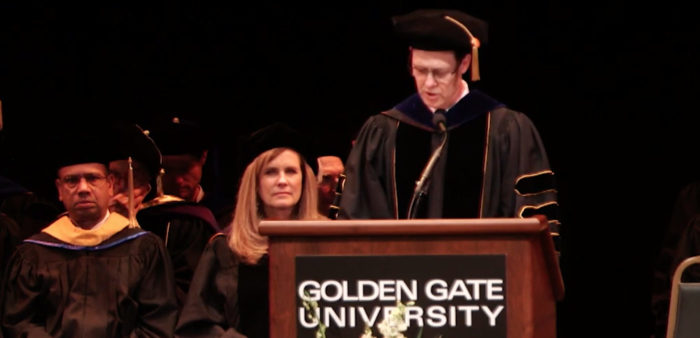
Alum Uses Data to Impact Housing Crisis
Kearey Smith wants to help find a solution to the housing crisis. Data science is helping him get there.
When he isn’t spending time with his family, Kearey Smith dedicates himself to his other passions: photography and his Rottweilers. It keeps him grounded when he’s away from his demanding job at the Metropolitan Transportation Commission where he was recently promoted to the Assistant Director of Data and Visualization.
What drives Kearey at work is the Bay Area housing crisis. It’s affected his own family who moved out to Antioch, California, where real estate is more affordable. Like many others, Kearey spends three hours each day on his San Francisco commute. Early on in his long career at the MTC, Kearey switched his professional focus from urban policy to data.
Connecting Policy to Data
“I saw data as a foundational piece of what a public agency needs to understand better to make public policy. We need to understand how people move from place to place and how our organization would support the transit system and reduce greenhouse gas emissions,” said Kearey.
Back in the early 2000s, Kearey began to lay the foundation for what he hoped would become a data strategy at his organization. His small team was poorly resourced. But, on his recommendation, HR began hiring staff with a data background, so that data expertise is distributed across the agency. Kearey also moved servers and infrastructure within his department to the cloud to reduce reliance on their IT department.
“Connecting policy to data and being data-driven was something I wanted our organization to pursue. To get there I knew we needed to do things way in advance. You have to play the long game in an organization like this.”
MS Business Analytics
Years later he picked up some data science certificates and, in 2017, he became interested in a master’s degree.
“The MSBA program was a natural fit for me. I had a lot to offer but also a lot to learn. What distinguished GGU from other programs is that the courses offer technical training and also the big picture through management, strategy, and performance theory,” said Kearey.
The Performance Management course lit a fire within Kearey.
“Everything we talked about in class connected to what I was doing at work. Drawing from my coursework, I prepared a presentation on what data strategy is and how we could implement it in our organization and delivered it to management,” said Kearey.
The Importance of Data Strategy
By the end of his program in 2019, Kearey’s department at the MTC agreed on the need for data strategy—an effort he had been working toward for years. He launched BASIS, Bay Area Spatial Information System, an initiative that will create a secure platform for collection, standardization, discovery, and dissemination of data to be used in regional planning efforts. The system will track information related to development conditions, land use, and environmental impacts associated with regional growth. It’s a great example of how the program helped him push forward innovative ideas that can make a difference in how policy and planning is done.
“The program was perfect for providing opportunities and giving me a greater foundation. Having a structured curriculum helped me leverage what I was doing at the agency and gave me the strategic tools to operate from. I learned the words to use to move people in a certain direction and can speak to problems through case studies we did in the coursework. It created a lot of opportunities.”







1 Comment
Using the Mamba Mentality to serve our community well. Thank you sir!